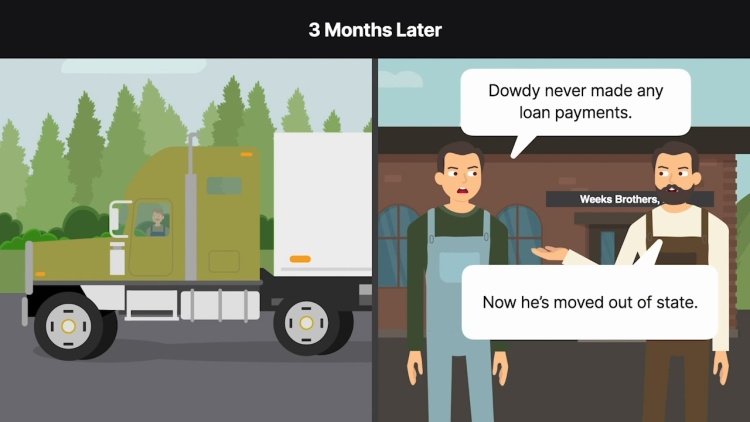Valley Bank v. Dowdy
South Dakota Supreme Court
337 N.W.2d 164 (1983)
- Written by Lauren Petersen, JD
Facts
Weeks Brothers, Inc., was a ranching corporation in Idaho. It employed Larry Dowdy (defendant). Weeks Brothers owned a tractor trailer, which it agreed to sell to Dowdy for $16,000. Valley Bank (plaintiff) financed the sale. Dowdy and Weeks Brothers executed a promissory note for the sale that required Dowdy to pay the $16,000 within six months. Valley Bank gave Weeks Brothers $16,000 and kept possession of the truck’s title. Three months later, Dowdy moved from Idaho to South Dakota, taking the tractor trailer with him. Dowdy did not make any payments to Valley Bank toward the $16,000 he owed. Valley Bank sued Dowdy to repossess the truck. Dowdy counterclaimed, alleging that under the theories of detrimental reliance and promissory estoppel, he should be compensated for the $6,658 that he had spent on maintenance and repairs to the truck. Dowdy argued that because he had relied upon Valley Bank’s promise to transfer title to him from Weeks Brothers, he had spent his own money and time repairing the truck. This reliance was to his detriment, because Valley Bank did not in fact transfer title to the truck as promised. Dowdy argued that he would not have made repairs to the truck had he known that Valley Bank would not perform its promise to transfer him the title. The trial court held that Valley Bank was entitled to possession of the truck, but the court also held that Dowdy should be compensated for his repair costs. Both Valley Bank and Dowdy appealed.
Rule of Law
Issue
Holding and Reasoning (Morgan, J.)
What to do next…
Here's why 911,000 law students have relied on our case briefs:
- Written by law professors and practitioners, not other law students. 47,100 briefs, keyed to 997 casebooks. Top-notch customer support.
- The right amount of information, includes the facts, issues, rule of law, holding and reasoning, and any concurrences and dissents.
- Access in your classes, works on your mobile and tablet. Massive library of related video lessons and high quality multiple-choice questions.
- Easy to use, uniform format for every case brief. Written in plain English, not in legalese. Our briefs summarize and simplify; they don’t just repeat the court’s language.





